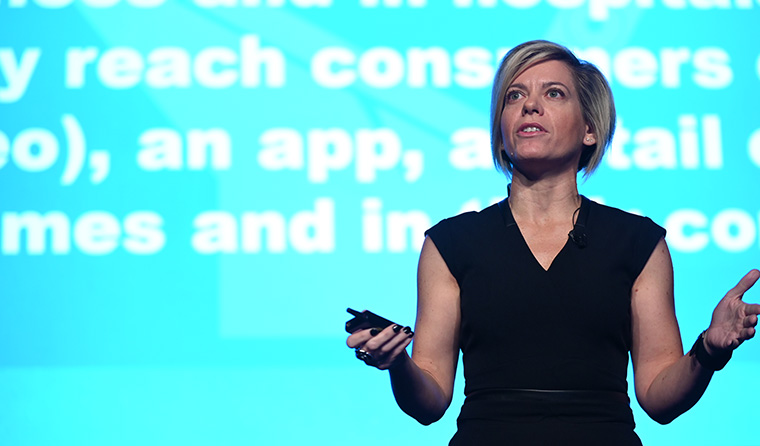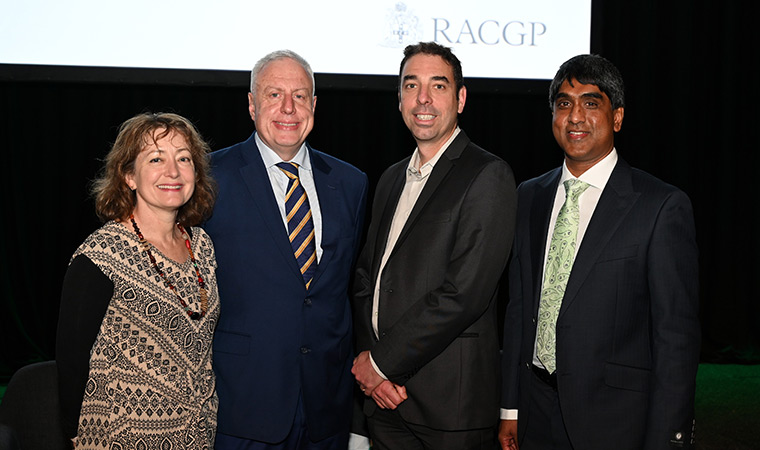Feature
Are you ready? Future-proofing your practice
Three practice owners explore how GPs can meet the coming technological revolution with enthusiasm about the possibilities and changes it presents.
 Are you ready for the coming wave of technological change and its effects on general practice?
Are you ready for the coming wave of technological change and its effects on general practice?
‘Health is on the cusp of a technological revolution, whether we like it or not … Every single healthcare institution is going to have to rewrite their business plan.’
This is the message Dr Louise Schaper, Chief Executive of the Health Informatics Society of Australia (HISA), delivered during her keynote speech at the RACGP Practice Owners Conference over the weekend.
During her talk, Dr Schaper explored a range of innovations currently being developed in healthcare, such as HealthTap, an app which aims to deliver universal healthcare and reduce health insurance costs by providing access to doctor-sourced healthcare information.
Or OpenNotes, a free and voluntary online service that provides patients with full access to their doctor’s notes. Or medical-grade products for consumers made by companies like CliniCloud, which creates thermometers and stethoscopes patients can use at home, sending the recordings to medical professionals for evaluation.
These technologies all increase the digitisation and democratisation of healthcare, and have major implications for patient-doctor relationships and healthcare delivery.
Dr Schaper’s challenge to her audience was, how do we prepare for these changes?

Dr Louise Schaper asks GPs, how will they prepare for technology-driven change in healthcare?
Associate Professor Charlotte Hespe, Chair of the RACGP Board and RACGP NSW&ACT, believes it is important for GPs to keep their eye on the future, even though this is challenging.
‘You can adopt the standard model of care, but I like to get controversial and say we’re practising yesterday’s medicine,’ she told newsGP.
‘The problem is, most of us don’t know what tomorrow’s medicine looks like. And so we’re in indecision mode about, “Do I change what I’m doing?”’
Dr Praskash Appanna, convenor of the RACGP Practice Owners Conference, told newsGP he does not believe that apps and artificial intelligence (AI) will replace GPs.
‘But it is going to force us to change the model in which we’re delivering care,’ he said. ‘And those of us who don’t switch on to it early enough are going to be the Blockbuster practices [ill-fated video/DVD store chain].
‘So that whole model of care is going to change, from GPs being diagnosticians to being focused on therapeutic options.’
Dr Appanna cited, as an example, future use of apps like Apple’s Mole Mapper, designed to assess moles for melanoma risk.
‘We may [in the future] have wonderful, 100% accurate mole readers, and they will bring the patient in; and so we’ll change to being not necessarily needing to read that mole, but to actually carrying out the task,’ he said.
Dr Appanna also believes the development of these technologies will need to be incorporated into the training of future GPs.
‘We’re going to need to train our medical students to integrate this information into the skills they need to deliver care,’ he said.
This training may also need to include how best to use patient data – which Associate Professor Hespe believes younger GPs, who have grown up as digital natives, may need to be taught to view as something that can provide valuable insights rather than being taken for granted as a part of a digital transaction.

Associate Professor Charlotte Hespe, Dr Sean Stevens and Dr Prakash Appanna with RACGP President Dr Harry Nespolon at the Practice Owners Conference.
Associate Professor Hespe also reflected on the growing importance of patient-centred care in an age in which healthcare information is becoming increasingly democratised and patients more mobile.
‘This is where the PREMS [patient-reported experience measures] and the PROMs [patient-reported outcome measures] are coming in, so an evaluation measure and an outcome measure that’s patient-reported,’ she said.
‘That’s quite different, for example, from me going, “Well I think I’ve delivered to them”, and the patient going out of the consultation saying, “The doctor didn’t listen to what I wanted and my agenda was never heard”.
‘I think that’s going to be driving a lot of stuff that, as doctors, is slightly challenging. Because most of us are still being taught around a medicalised model of care rather than a patient-centred model of care.’
Developments in technology also have very concrete implications, not just for delivery of healthcare, but also in issues such as building design – something Dr Sean Stevens, Chair of the RACGP Business of General Practice Specific Interests Network, has found out through his own experience.
‘The previous practice I was in, we designed a building from scratch and built a server room,’ he told newsGP.
‘Now I’m designing a new practice and we’re not bothering with the server room, because everyone’s going to the cloud. So we’re future-proofing it.’
Associate Professor Hespe sees this as a good example of the need to think constantly about what is around the corner in healthcare, and charges her fellow GPs to go boldly into the future.
‘There are those who are innovators, those who are early adopters, those who are late adopters,’ she said. ‘Most people are comfortable with being the late adopter and want to watch and see what the innovators and early adopters are going to do in that space.
‘I think the challenge is, maybe be a little bold, go and experiment – it’s exciting, and patients are actually ready to come with you.’
Future proofing Healthcare technology RACGP Practice Owners Conference
newsGP weekly poll
Which of the following areas are you more likely to discuss during a routine consultation?